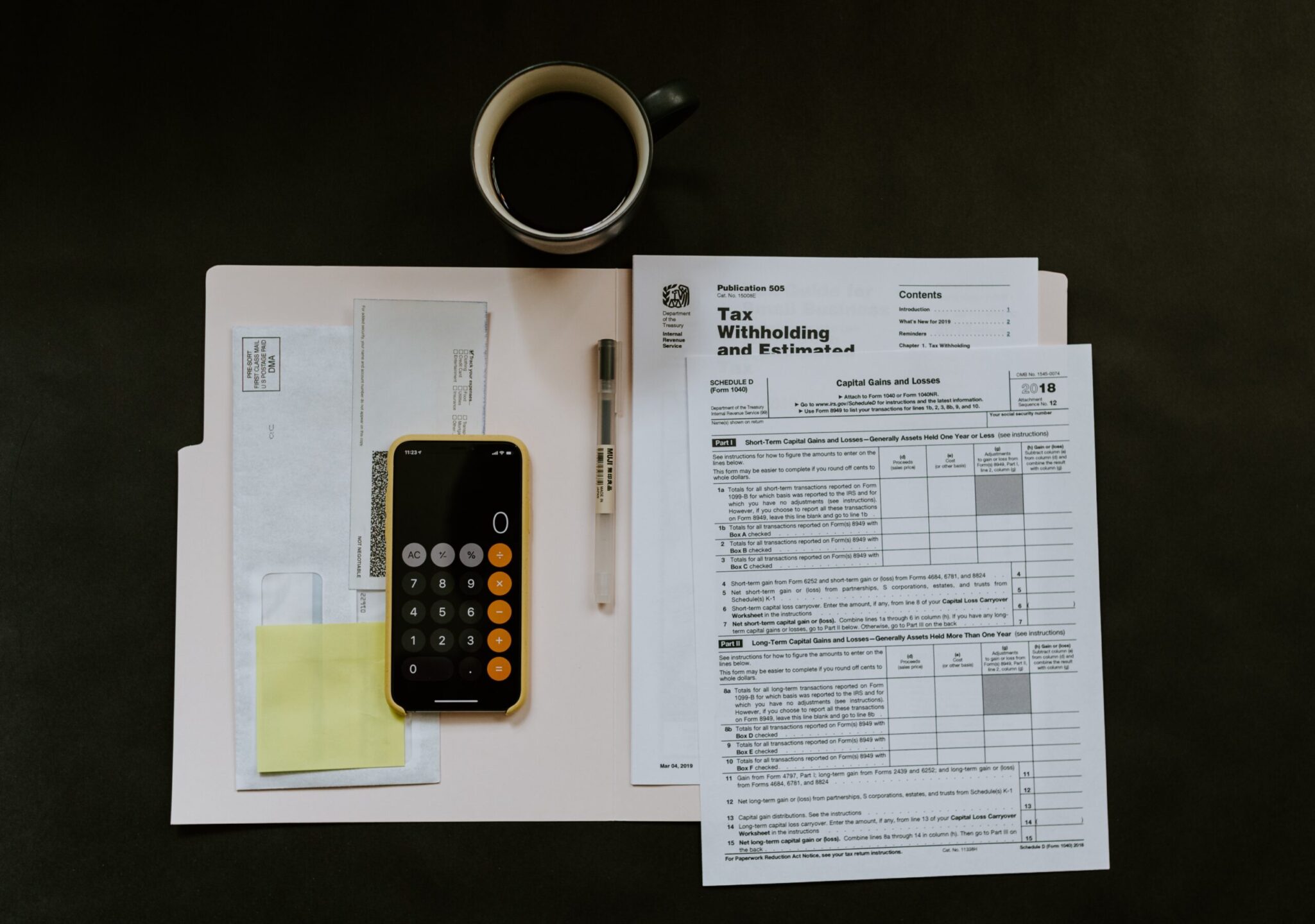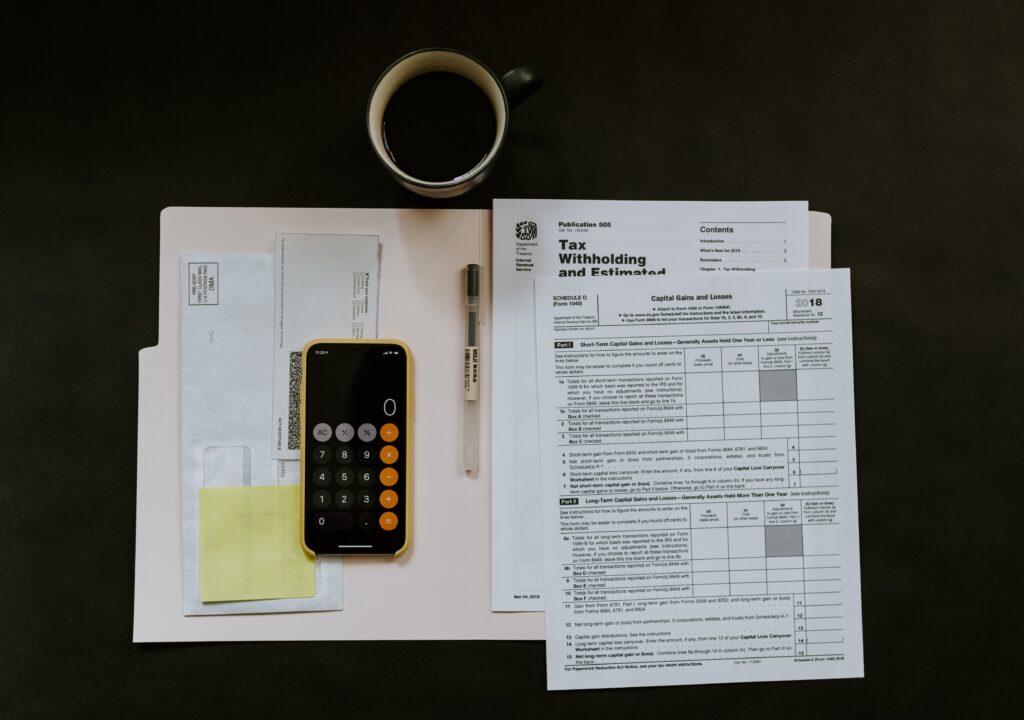



If want to increase your retirement savings or gain access to capital that will help you make sizable renovations to your home, a cash-out refinance may be right for you. This type of refinance allows you to use the equity you’ve built up in your home to pay for a wide range of expenses. The most common renovations that are made with this money include replacing a malfunctioning HVAC unit and adding a new pool.
There are some clear tax implications that you’ll need to contend with when you receive a cash-out refinance. When you initially take out a mortgage, you’ll gain access to numerous tax credits and deductions that can reduce the amount of money you owe. On the other hand, the IRS views refinances as a kind of debt restructuring, which means that there aren’t as many tax advantages. In this guide, you’ll learn what how your taxes can be affected by a cash-out refinance.
Cash-out refinancing allows you to take advantage of the money you’ve paid off for your existing home loan over the years. By selecting a cash-out refinance, you’ll receive funds without needing to go through the process of selling your home. The refinance will replace the existing mortgage with a completely new loan that’s higher than the amount you currently owe in your property. You’ll then receive the difference between the two loans in cash.
Let’s say that your existing home is valued at $325,000 with a mortgage balance of $200,000. The equity you’ve built up will be around $125,000. The new loan you receive may be limited to 80% of the total home value, which amounts to $260,000. The amount of cash you can receive from this refinance is the difference between the balance on your previous mortgage and the new loan amount, which is around $65,000. Once you’ve gained access to this money, you can use it to:
The money you obtain from a cash-out refinance isn’t viewed as income, which means that you won’t need to pay taxes on this cash. Even though you benefit monetarily from this loan, it’s still considered by the IRS to be a loan, which is why there are some tax benefits with a cash-out refinance.
For instance, you can deduct the total interest on your initial loan if the funds from the refinance are put towards one or more permanent renovations that increase your home’s value. Some of the improvements that could be made to your home include:
It’s also possible to deduct the expenses associated with purchasing points to reduce your cash-out refinance interest rate. Keep in mind, however, that you’re unable to claim tax deductions if you end up spending the money from this loan on consolidating debt or completing repairs around your home.
If you want to quality for a cash-out refinance loan, there are numerous requirements that you’ll need to meet. First of all, it’s essential that you’ve built up enough equity in your property to be approved for this loan. Most lenders only provide cash-out refinance loans to homeowners who’ve built up equity of 20% or more.
To determine if you qualify, your preferred lender will also consider the loan-to-value ratio, which is calculated by dividing the total amount you owe on your current mortgage by the home value. In the event that your mortgage balance is around $160,000 while the value of your home is upwards of $200,000, this would amount to an LTV ratio of 80%. At this ratio, you’ll have 20% equity, which is usually enough to meet equity requirements.
Another consideration involves the total income and assets you have. Your lender will ask how much money you make, how much funds are in your bank and retirement accounts, and if you own another property.
The amount of existing debts you have will determine if you’re able to qualify for a cash-out refinance loan. Make sure that you take all credit card, personal loan, and student loan debt into account. Your lender will also look at your debt-to-income ratio. This ratio is calculated by dividing monthly debt obligations by your income. Lenders find this calculation to be important because it helps them identify if you’re able to effectively manage debt.
An individual with a bad credit score may be able to quality for this type of loan. While home equity loans and home equity lines of credit typically require a credit score that ranges from 660-700 at the lowest, cash-out refinance loans may be approved even if your credit score is lower than 660. Your credit history will also be examined.
Just like any loan, there are risks that come with a cash-out refinance, which include everything from the possibility of foreclosure to the need to pay high closing costs.
Your home will be used as collateral for the refinance since this loan replaces your existing mortgage. If you ever find that you can’t make your monthly loan payments, your lender could decide to foreclose on your property. Make sure that you actually need the money before apply for this type of loan.
It’s possible that your cash-out loan could come with new terms that involve different fees and interest rates. Make sure that you understand what these terms are before sending in your application.
The main downside of applying for a cash-out refinance is that you’ll need to pay closing costs that are similar to the ones you paid for your initial mortgage. These costs usually amount to 2-5% of your new mortgage. If the mortgage is valued at $180,000, your closing costs could range from $3,600-$9,000.
If you want to obtain a cash-out refinance to get rid of your credit card debt, it’s important to understand that you’re only swapping one debt for another. Credit card debt is also considered to be unsecured, which means that you won’t lose your car or home if you don’t make these payments.
If you’ve built up a high amount of credit card debt over the years, this could be caused by poor spending habits. If you want to keep your debt low in the future, it’s highly recommended that you focus on correcting these bad habits.
There are several alternatives to cash-out refinancing that you might want to consider. Even though this type of loan is beneficial in many ways, there are some issues that you should take into account, the primary of which include higher closing costs and a higher loan amount that will eventually need to be repaid.
Personal loans allow you to borrow a set amount of money that can be paid off in a fixed term. Since the interest rate for this loan is usually fixed, your monthly payment should be largely unchanged until the loan has been fully repaid. The majority of these loans are also unsecured, which means that offering collateral is unnecessary.
A home equity line of credit allows you to borrow anywhere from 60-85% of your home value minus the amount you still owe on your mortgage. This line of credit is revolving and comes with variable interest rates. HELOCs are typically secured by your home equity. Once you’ve been approved for a HELOC, you can access the credit whenever you want and and can use it to pay for any expense.
You’ll only need to make payments on this loan when you end up borrowing against the line of credit. After a period of around 10 years, you’ll be tasked with repaying the loan. If a balance remains, it will be converted into a type of installment loan that’s paid back over a specific period of time.
If you decide to refinance your initial mortgage, you can choose to pay off your old loan and eventually replace it with an entirely new one. When refinancing your initial mortgage, the new loan will be for the exact same amount that you still owe. The main goal of this loan type is to help you obtain a much lower interest rate, which will reduce the monthly payments you owe. You can also use a refinance to switch the loan term from 30 years to a 15-year term.
The money you gain from a cash-out refinance isn’t viewed by the IRS as income, which means that additional taxes won’t be owed. If you use the money for home renovations, you can even gain access to certain tax benefits and deductions. Before you apply for a cash-out refinance, make sure that you qualify.
California's housing laws have undergone various updates aimed at addressing the state's housing crisis. Let's…
Before diving into tips for a successful mortgage application, it's important to understand the mortgage…
Accessory Dwelling Units, or ADUs, have become a hot topic in urban planning and real…
As Gen X approaches their prime years of homeownership, their decisions are shaped by a…
Economic uncertainty refers to a period when financial markets, currencies, and economies are volatile and…
California's housing crisis has been a hot topic for quite some time now. With a…